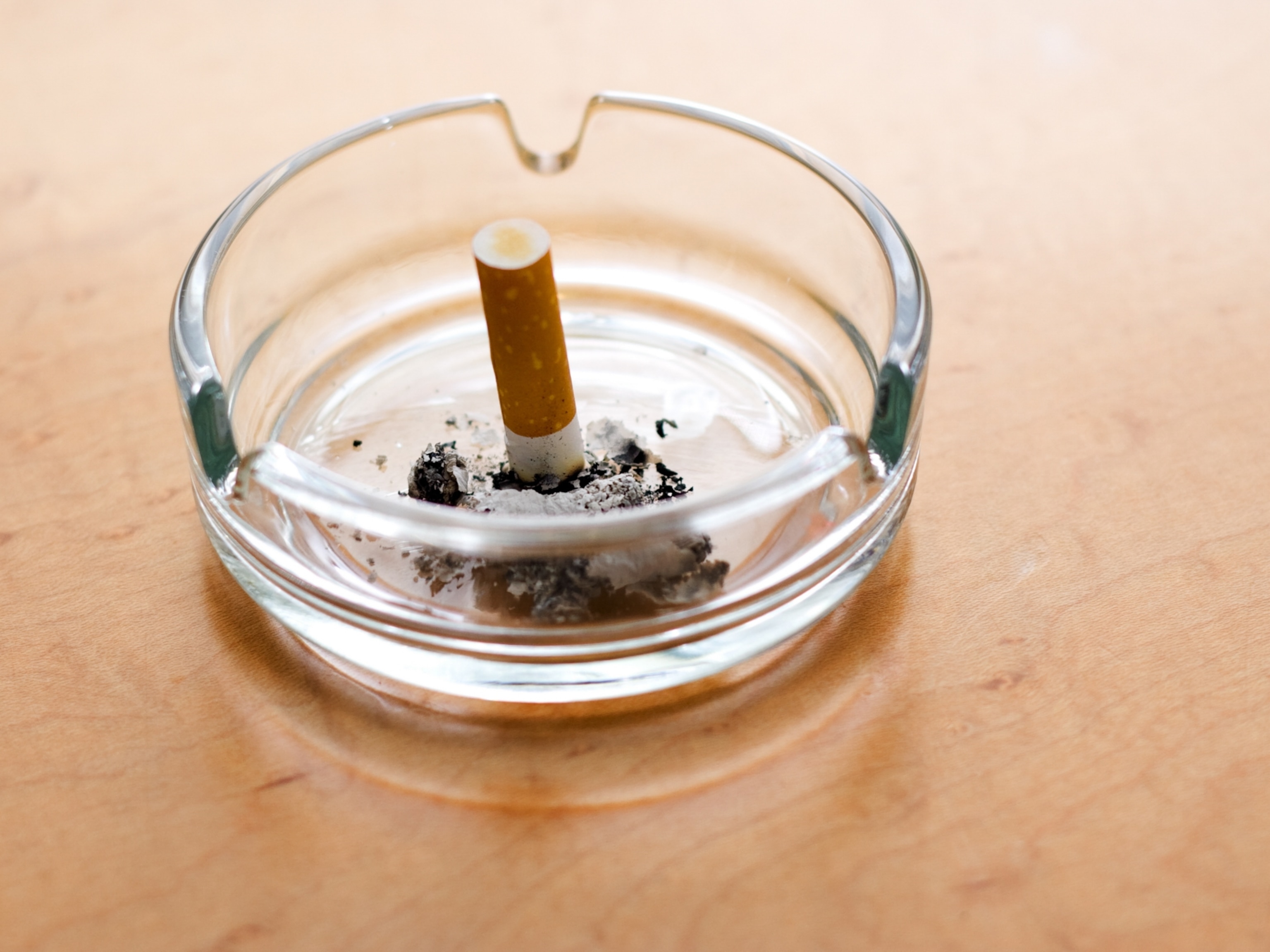
When you go sober for even a month, your body will change. Here’s how.
Dry January. Sober October. More and more people are attempting to curb their alcohol use—so we asked experts what benefits you can really expect to see.
Every year, millions of people across the world give up alcohol for a month—a tradition that started as Dry January, and has expanded into similar efforts, such as Sober October. Whether it’s part of a coordinated campaign, or simply an individual attempt to drink less, the number of sober-curious people among us seems to be growing.
In 2025, 20 percent of U.S. adults are planning to take part in Dry January, according to an Ipsos survey, and 39 percent have resolved to drink less alcohol all year long. Those numbers are even higher among young adults—25 percent of adults aged 18 to 34 plan to participate in Dry January and 50 percent say they want to drink less in 2025.
As the number of Dry January participants increases, it raises the question of what the benefits of giving up alcohol for a month are, and whether a month is long enough to start experiencing them.
(8 things we've learned about how alcohol harms the body.)
“The effects are going to be different for different people, depending on how long they have been consuming alcohol,” says Shehzad Merwat, a gastroenterologist at UTHealth Houston. As research is starting to show, there are many benefits to cutting down on alcohol all year round—and efforts such as Dry January can play an important role in moderating drinking habits.
How alcohol affects the body
Alcohol harms our bodies in many different ways. The most prominent effects are on the liver, which is where alcohol gets broken down, but there are secondary effects on our other organs, such as the heart, gastrointestinal tract, pancreas, and brain. These can range widely and are often dependent on how long alcohol is in the body, and how much you consume.
“Blood alcohol levels are a major factor that damages the organs,” says Paul Thomes, a researcher at Auburn University, whose work focuses on the mechanism of alcohol-induced organ damage.
(Why that cocktail before bedtime isn't as helpful as you think.)
As Thomes explains, the liver breaks alcohol down into a less toxic form so that it can be eliminated in the body. During this process, alcohol is first broken down into acetaldehyde, which is highly toxic and a known carcinogen. Typically, acetaldehyde gets broken down very quickly; however, if this process gets delayed or disrupted—either because of high blood alcohol levels, or another underlying factor, such as medications that interfere with liver metabolism—then it can build up throughout the body, causing damage.
“How long the toxic molecules are being accumulated in the cells and tissues determine the degree of damage,” Thomes says.
This damage can have an effect on all of the organs of the body, which results in a number of long-term health risks of chronic alcohol use, including high blood pressure, heart disease, liver disease, and an increased risk of developing certain types of cancer. Chronic alcohol use can also weaken the immune system and impair the proper functioning of the brain.
How the body recovers from alcohol
Most of the research on the effects of giving up alcohol is focused on heavy drinkers. However, “even in lighter drinkers, you can have noticeable health effects when you stop drinking alcohol for a month,” says Carrie Mintz, a psychiatrist at Washington University in St. Louis. “You can see those changes as early as a month.”
(Alcohol is killing more women than ever before.)
After giving up alcohol, changes will start to take effect within weeks. This includes in the liver, which can start to reverse the damage done in most of the four stages of alcohol-related liver disease—which starts with the accumulation of fat, then progresses to chronic inflammation, which leads to scarring, and ultimately results in cirrhosis. For all but the very final stage, the liver can heal.
“The liver has an enormous regenerative capacity,” Thomes says. “The first three stages [of liver damage] are reversible during abstinence from alcohol.” Abstaining from alcohol can even have some benefits for those with cirrhosis of the liver by halting the progression of the disease and lengthening a patient’s survival, although it won’t reverse the condition.
In addition to the benefits to the liver, giving up alcohol can result in a number of other health benefits—which are also thought to be due to decreasing levels of alcohol and acetaldehyde in the body.
In a study that followed 94 moderate-heavy drinkers who gave up alcohol for a month, participants experienced improvements in insulin resistance, blood pressure, and weight, compared to their peers who did not abstain.
Some of the other benefits of giving up alcohol include improved sleep, improved mood, including a decrease in depression and anxiety, plus healthier skin and a healthier gut. Alcohol has been shown to disrupt the microbial composition of the gut, a condition called dysbiosis, and cause damage to the cells lining the gut, which can cause the contents of the intestine to spill over into the bloodstream.
(What is the gut microbiome—and how does it affect your health?)
“In the gut, this dysbiosis can be reversed, but not completely, even after three to five weeks,” Thomes says. “It takes a longer time to restore the gut microbiome and the damage caused to the gut.”
One month can also offer insight…
Giving up alcohol for a month also often has the benefit of helping people understand how their alcohol consumption habits are affecting their general health and well-being.
“It can be very insightful,” says Steven Tate, a physician at Stanford University who specializes in addiction medicine. As Tate notes, alcohol can either cause or worsen health issues such as poor sleep, depression, or anxiety. Regular alcohol may also be an attempt to self-medicate for underlying sleep or mood disorders. By giving up alcohol for a month, this gives people the chance to untangle whether alcohol is causing—or masking—health issues.
(Sober tourism is a growing trend—here’s how it can transform your trip.)
In Tate’s experience, giving up alcohol can also help people better understand their relationship with alcohol, including whether their consumption has gotten out of control.
“It’s sometimes hard to realize when you slip into an addiction,” Tate says. “It’s sometimes tricky to know where that line is, and sometimes people don’t realize it until they’re already across it.”
…and change your drinking habits
One of the primary concerns about efforts to give up alcohol for a month have been what happens after the month has ended, with the worry being that a person’s consumption habits may become more extreme once they resume drinking. However, studies suggest that, for a number of Dry January participants, giving up alcohol can lead to reduced consumption in the following months.
In the study that tracked 94 moderate-heavy drinkers who gave up alcohol for a month, when researchers followed up six months later, participants reported drinking significantly less than before, with an average pattern of alcohol use that placed them in the “low risk” category for problematic drinking habits. In another survey of 857 British adults who participated in Dry January, participants also reported drinking less six months after giving up alcohol for a month.
As research is starting to show, consistently drinking less alcohol can have some important health benefits—which are sure to linger long after the month has ended. Given the damage that alcohol can cause to the various organs in the body, especially at higher blood alcohol levels, experts note that an overall reduction in drinking habits can have some major long-term health benefits.
“If you are drinking less, you are at a lower risk to incur some of those damages,” Mintz says.







